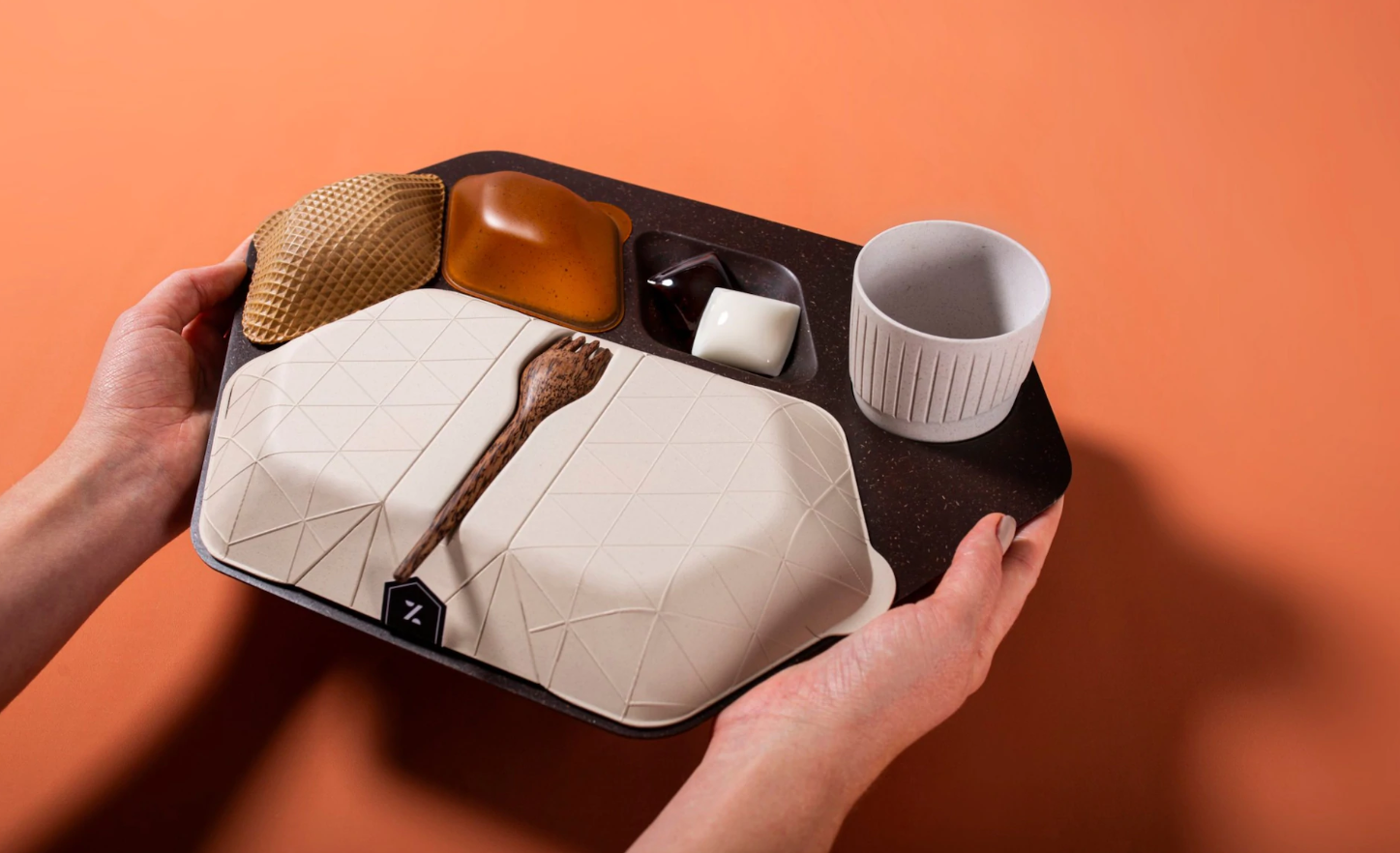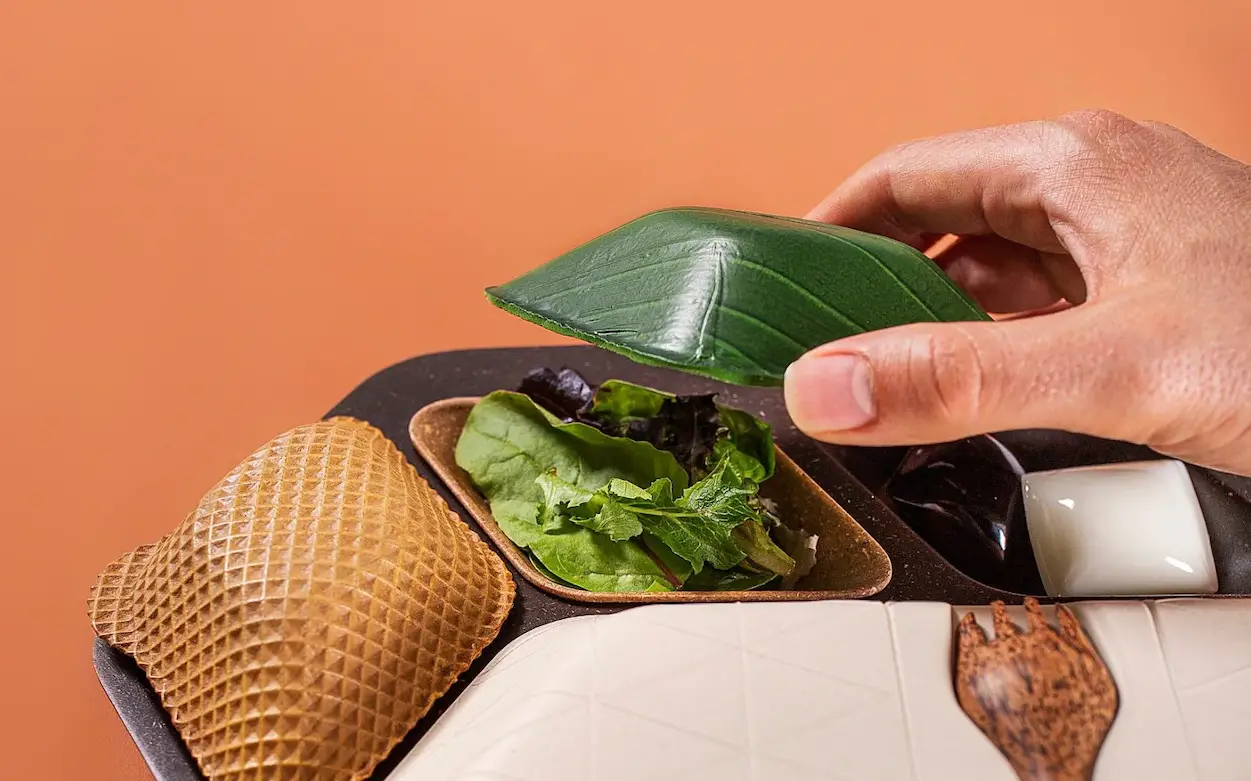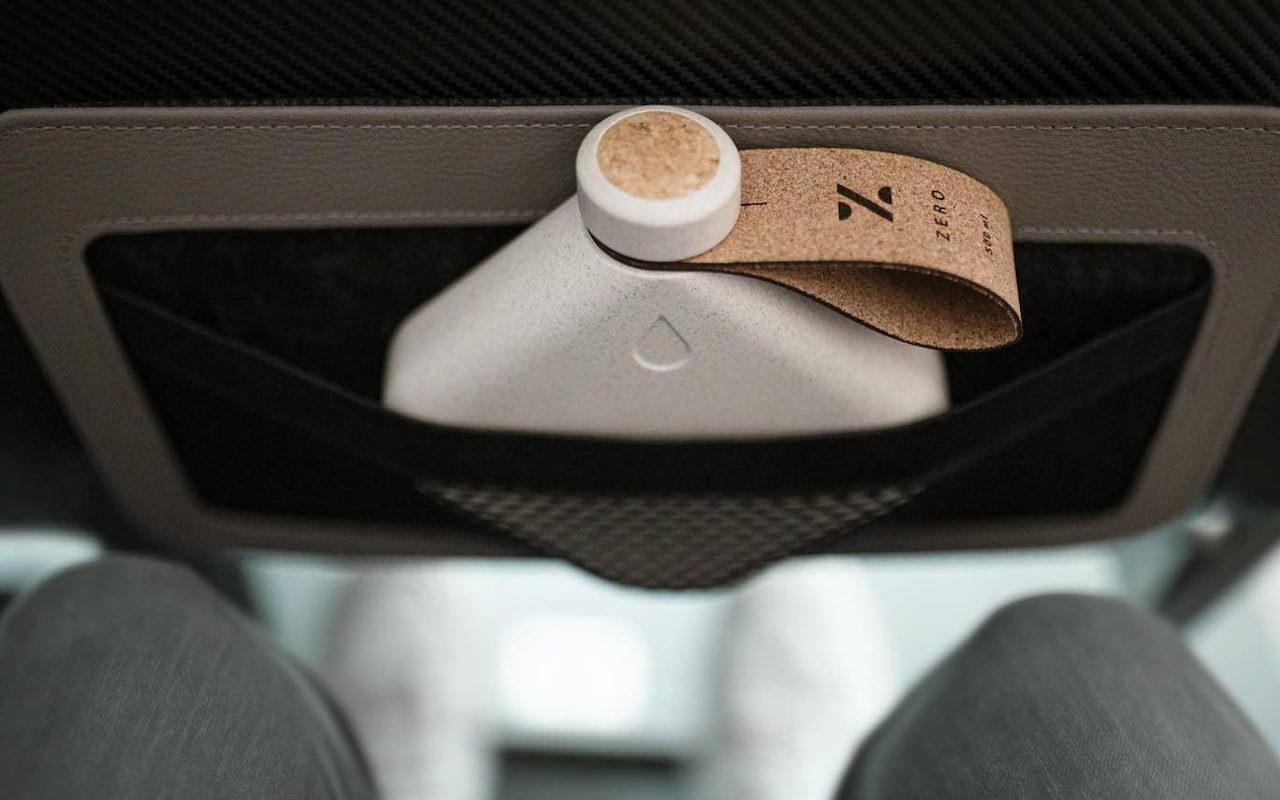Edible, Plastic-Free Meal Trays Designed To Reduce Airline Waste
Tags: opinion
 Credit: PRIESTMANGOODE
Credit: PRIESTMANGOODE
A London-based design company has updated the classic airline food tray to be plastic-free and entirely biodegradable, using all-natural materials. They are motivated by a desire to tackle the ever-growing problem of airline waste.
The tray will be made out of recycled coffee grounds, with side dish sections made out of banana leaves, wheat bran or algae. The condiments and milk capsules will be made out of a soluble seaweed. The cups will be replaced by an eco-friendly alternative made of rice husk with an algae liner. The single-use plastic forks, spoons and knives will be replaced by coconut wood sporks. The entire tray can then be covered with a lid fashioned out of bamboo to streamline the waste collection and make for compact disposal.
 Credit: PRIESTMANGOODE
Credit: PRIESTMANGOODE
Because everything is made from natural ingredients, each part of this meal tray is edible—although it is unlikely that it will taste good. The importance of its edibleness is that it can be discarded as food waste and therefore commercially composted, making it entirely biodegradable. The one part of this tray you should definitely snack on though is the dessert dish lid, which is made out of the same wafer as ice-cream cones!
Also read: San Francisco Int’l Airport Bans The Sale Of Plastic Water Bottles
Design studio PriestmanGoode displayed these innovations as a part of their exhibition ‘Get Onboard: Reduce. Reuse. Rethink.’, which is currently on display at the London Design Museum. The exhibition wants to critically examine the material waste produced by commercial flights and propose sustainable alternatives. Apart from the food trays, they have also created a chic alternative for single-use plastic bottles. The water flask, which is made out of cork and compostable bioplastic, is refillable, easy to carry, and ideal for short-term use like long-haul flights or holidays.
 Credit: PRIESTMANGOODE
Credit: PRIESTMANGOODE
PriestmanGoode is currently in talks with train companies and various airlines about the possibility of turning their concept into a reality in the travel industry. In doing so, the design studio is hopeful that they could help tackle the issue of airline waste.
Over 5000 people have downloaded our free ebook “Growth Hacking Tips And Rituals For Optimal Living” CLICK HERE to get your free copy now
The average material waste per passenger in a long-haul flight is 36 ounces; 50% of this waste is single-use plastic from meal deliveries. This means that nearly 6 million tons of cabin waste is generated on global passenger flights each year, from earphones and eye-masks to toiletries and food waste. By 2030, this number is expected to nearly double to an annual ten million tons.
Also read: On Gandhi’s Birthday, India Plans To Ban 6 Single-Use Plastics
Airlines aren’t oblivious to the scope of the problem and some have started to embrace a more environmentally-friendly outlook, like Australian carrier Qantas, which aims to eliminate 75% of the airline’s waste by 2021. UAE’s Etihad Airways also announced that it would reduce its single-use plastic usage by 80% by the end of 2022.
But these are individual commitments. PriestmanGoode’s intervention is both timely and necessary, as it allows for change to be effected en-masse. These plastic-free, edible trays could be the first step in tackling a huge global problem.
Leave Comment: